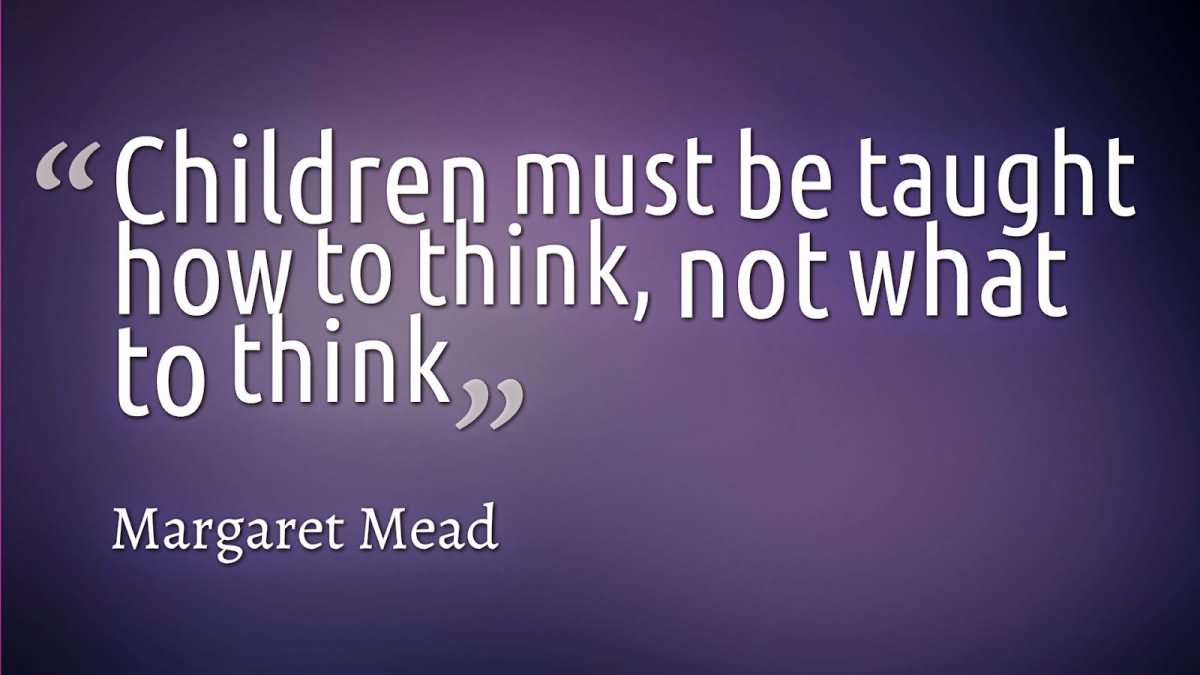Childhood must be taught how to think, not what to think.
Published on February 25, 2017 , under Quotes

It is utterly false and cruelly arbitrary to put all the play and learning into childhood, all the work into middle age, and all the regrets into old age.
Published on June 6, 2016 , under Quotes

Source: Margaret Mead, As quoted in Teacher’s Treasury of Stories for Every Occasion (1958) by Millard Dale Baughman, page: 69.
Children must be taught how to think, not what to think.
Published on June 1, 2016 , under Quotes

Source: Coming of Age in Samoa: A Psychological Study of Primitive Youth for Western Civilisation (1928) by Margaret Mead.
Sponsored Links
Children must be taught how to think, not what to think.
Published on May 31, 2016 , under Quotes

My grandmother wanted me to have an education, so she kept me out of school.
Published on May 27, 2016 , under Quotes

Never believe that a few caring people can’t change the world. For, indeed, that’s all who ever have.
Published on May 9, 2016 , under Quotes

Source: Margaret Mead, The World Ahead: An Anthropologist Anticipates the Future.
Always remember that you are absolutely unique. Just like everyone else.
Published on February 24, 2016 , under Quotes

Note: This was designated “Meade’s Maxim” in a 1979 book (1,001 Logical Laws…, p. 153), and not linked directly to Margaret Mead; since around 2001, this has often been attributed to Mead, but there is no definitely documented evidence of this.

 Love It 0
Love It 0